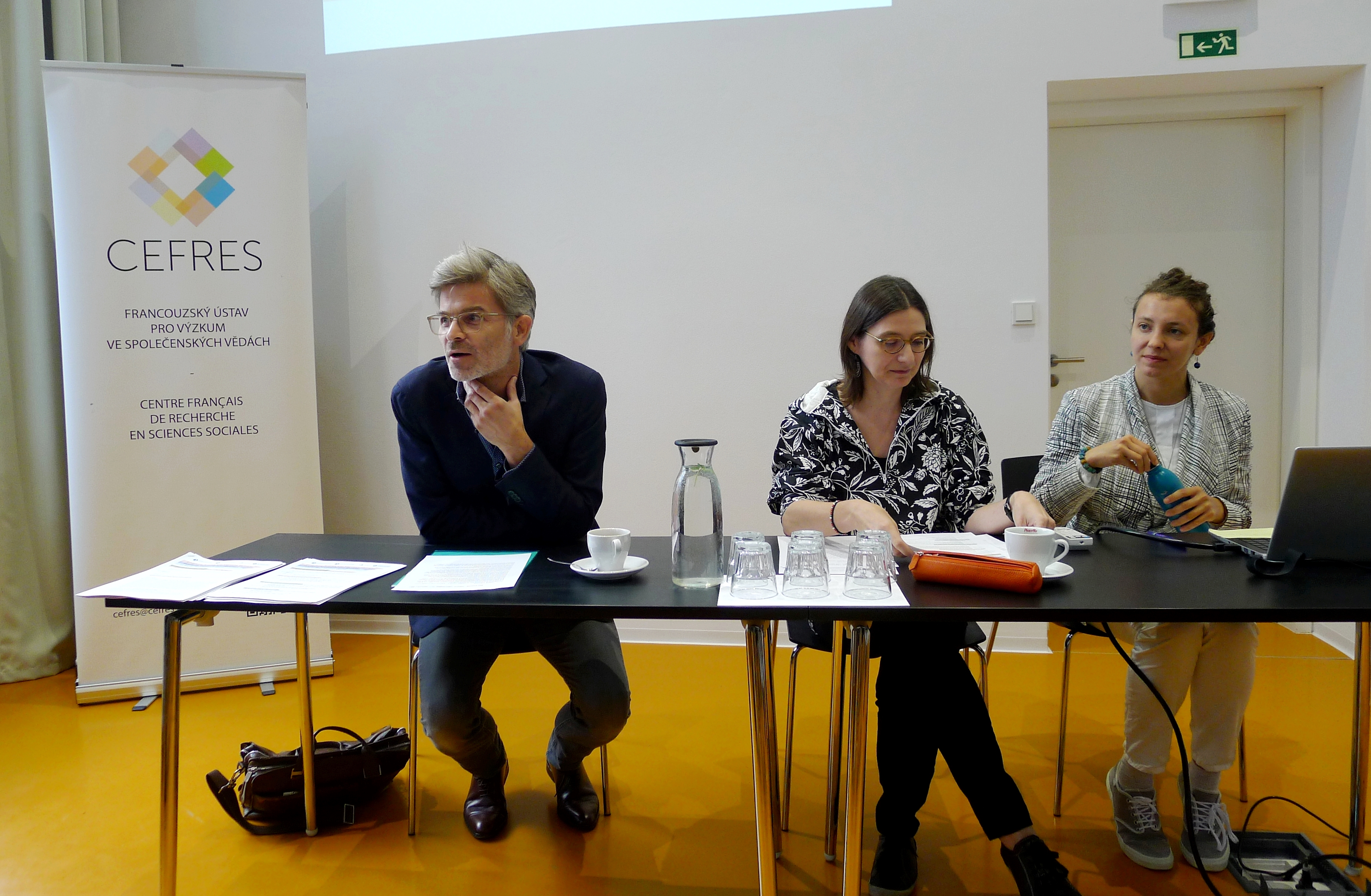At the end of two years of preparation, the “Tandem” team from CEFRES Platform, led by the anthropologists Luděk Brož and Virginie Vaté, acquires the prestigious “Consolidator grant” of the European Research Council (ERC). This success illustrates the excellent quality of the Franco-Czech cooperation in the field of Humanities and Social Sciences research, and highlights the central role played by the French Research Center in Humanities and Social Sciences in Prague (CEFRES) as an incubator of European projects.

On the 10th of December 2019, the European Research Council has published the list of research projects receiving the prestigious “Consolidator grants”. The anthropologist Luděk Brož, researcher at the Ethnologic Institute of the Czech Academy of Sciences and at CEFRES, has obtained two million of euros to finance his project about the relationships between hunters, boars and the sanitary security.
This project, set up in collaboration with Virginie Vaté, researcher at the CNRS, is a result of the close partnership between CEFRES, CNRS, Czech Academy of Sciences and Charles University, associated in “CEFRES Platform”, whose convention had been extended on the 6th of November 2019. Winners of the first team “Tandem”, Luděk Brož and Virginie Vaté, have prepared this project for two years (2018–2020), setting up an international network and organizing various international scientific events.
The veterinary medicine, the hunt and the boars are in the centre of this research project. During the next five years, Luděk Brož will firstly study with his team the conflicts provoked by the proliferation of boars in Europe, and then the contagion risks of the African swine fever.

The African swine fever is considered as one of the most serious animal diseases of our time. If it could not be spread to Human, it leads to the death of contaminated pigs, regardless of their nature (wild or domestic). This virus is very resistant and transmitted in a relatively easy way, by direct contact with an infected animal, with their corpse or their moods. So far, none of the existing vaccines could cure this disease, thus the latter threatens the farms all over the world and directly it impacts the economies of various countries.
In 2007, the illness has been disseminated from Georgia to Europe and Asia. Nowadays, it has been spread from China to Poland and has provoked geopolitical transformations. Last year, Poland considered raising a fence all along her frontier with Ukraine and Bielorussia; Denmark is currently finishing the construction of a palisade on his border with Germany. As Luděk Brož notices, “on behalf of sanitary security, thirty years after the dismantling of the Iron Curtain, some fences appear on boundaries inside Schengen Area”.
In the framework of this project, Luděk Brož will look after the impact of this threat on the hunters’ community. Today, in Europe, seven million hunters, most of the time amateurs, are looking for redefining their role and renewing the terms of their acceptability by being in touch with the veterinary epidemiology.
According to this author, the project “opens new empirical and theoretical perspectives on the hunt phenomenon”, because the threat that represents the African swine fever has transformed boars into “Trojan horse”, carrying contagion all over the European continent. In this context, the concurrency between the Human and the boar for the control of the territory, as well for its resources, is converted into a boar war with mass slaughter, closed zones and border fences”.
The biannual program of CEFRES Platform named Tandem has acted as an incubator for this project. It associates two researchers, one from the Czech Academy of Sciences and one from the CNRS, for the preparation of an ambitious project. Charles University strengthens the team by financial support for one post-Ph.D. student. In 2020, a new Tandem team will settle at CEFRES for two years and will gather Michèle Baussant, anthropologist, research director at CNRS and specialist of migrations; Johana Wyss, PhD from Oxford University and anthropologist at the Czech Academy of Sciences; and Maria Kokkinou, post-PhD Their project entitled “The Europe of Resentment. A Confederation of the Vanquished” will study memorial practices of various national minorities and displaced people in Europe, after a war or decolonization. This project fits perfectly within the scientific politic of CEFRES. It echoes as well to the European contemporary migrations’ actuality.
